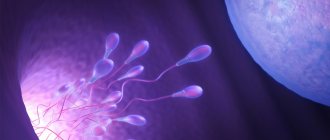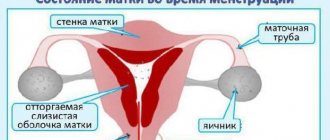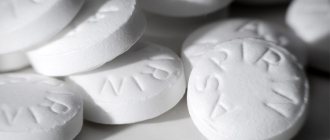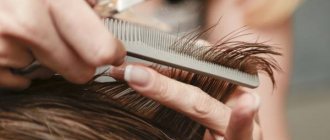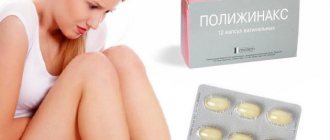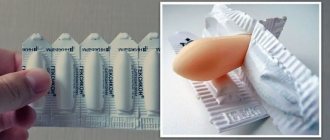Diet for weight loss during menstruation
The diet during this period involves the use of the following foods:
- Vegetables and fruits. They are rich in antioxidants, which reduce pain and improve digestion. It is recommended to prepare dishes from broccoli, lentils, and eggplant. These products contain folic acid, proteins, dietary fiber, magnesium and potassium, and calcium. Fruits you can eat are apples, apricots and bananas.
- Fermented milk products help restore the body during menstruation, as they contain large amounts of calcium. Cheese, kefir and cottage cheese must be present in the diet.
- Lean meat, red meat is best, as it helps normalize the level of hemoglobin, iron, and amino acids. You can use chicken breast, which contains pure protein.
- Seafood and fish help cope with pain; they contain iodine, calcium, vitamin D, and fatty acids.
- Nuts must be included in the diet because they contain vitamin B and fatty acids, which help improve well-being. Walnuts, almonds and hazelnuts are allowed.
- Tea should be herbal or green; it calms the nervous system and has a positive effect on the body.
When using a diet during menstruation, you need to think through your diet during this period in advance. The menu should be varied, rich in proteins and fats.
It is not recommended to use sauces, ketchups, marinades, smoked and salty foods.
Sample menu
You can use the following menu suggested by nutritionists.
First option:
- For breakfast you can eat a boiled egg, a slice of rye bread, a glass of fresh berries or fruit,
- For lunch, we recommend boiled chicken breast or turkey meat, steamed or baked vegetables,
- For dinner you need to drink one glass of kefir or low-fat milk, eat a glass of fresh fruit.
Option two:
- For breakfast you are allowed to eat two hundred grams of cottage cheese and one hundred grams of oatmeal without salt,
- For lunch, you can steam fish, make a vegetable salad with some herbs,
- For dinner you can prepare a dessert of cottage cheese and berries, as well as steamed seafood.
Third option:
- For breakfast, oatmeal cooked in water without adding salt, berries,
- For lunch you can eat creamy vegetable soup,
- For dinner, a fruit salad and a few nuts are good.
You can stick to this diet, or you can make a list of dishes yourself that will be used when following a diet for weight loss during menstruation. At the same time, dishes should not be fried; it is better to steam them, bake them, boil them or use the grill.
Sticking to a diet during menstruation is an interesting and effective method for women losing weight. During this period, natural cleansing and renewal of the female body occurs.
But the process of losing weight should proceed smoothly, you need a nutritious diet so as not to provoke the appearance of unpleasant symptoms.
High expectations from training
Many ladies are sure that if they do morning exercises for a week, switch to proper nutrition, and here it is, a wasp waist.
With such expectations, disappointment is inevitable. Excess weight, which has sometimes accumulated for years, cannot easily and simply dissolve in a short time without harm to health. Therefore, you should avoid diets that promise to make you a model in a couple of weeks - this can result in a hospital bed.
And even if such a disastrous result does not follow, lost through a low-calorie diet and exhausting workouts will return a hundredfold: with such a diet, the weight loss is explained by the loss of water and muscle mass, and not fat at all. Sooner or later the diet ends, the woman returns to her usual diet. Weight inevitably begins to grow, despite training , because the body, which has experienced prolonged stress, seeks to store energy in case of another hunger strike. It's a vicious circle , diets don't work, remember.
Proper nutrition and moderate exercise will definitely help you achieve slimness, but the process can take quite a long time .
The main task is to create conditions for fat burning and not disturb them. Gradually, the body will adopt a new regime, the metabolism will speed up, and the hated fat will finally begin to burn.
The path to an ideal figure will most likely take more than one month , during which time proper nutrition will become a healthy habit, and training will begin to bring pleasure. Patience, just patience.
Weight gain during menstruation
Many people encounter difficulties during this period, so they are interested in why the weight does not come off on a diet during menstruation. It's all about hormones; during menstruation, they delay the removal of fluid from the body, which leads to excess weight. Therefore, nutritionists recommend excluding salty and smoked foods from your diet. You can also take the following measures:
- Avoid consumption of coffee and tobacco products,
- Avoid salt
- Drink one glass of kefir before bed to speed up metabolism,
- Avoid eating fruits that contain a lot of sugar.
With such a diet, the period of menstruation will pass painlessly, the woman will feel comfortable, and her mood will improve.
To prevent the menstrual cycle from being disrupted and the extra pounds to go away, it is recommended not to drink any alcohol, as they can cause disruption of the hormonal system.
Plateau effect
This unpleasant phenomenon is encountered by the vast majority of those losing weight, and not so much by beginners, but by “experienced fighters” who have already seen the first result. And everything seems to be as it should be: proper nutrition, adequate training, sufficient reserves of patience and motivation. What's the matter?
You shouldn’t get upset, much less give up what you started. The plateau effect is normal and can last from two weeks to several months . The main reason for losing weight is the body getting used to training and slowing down metabolism . Our body simply adapts to stress and is lazy about burning fat.
In this case, in order to lose weight, it is enough to change the training program: add new exercises, move the training time from the evening to the morning or vice versa. Nutritional adjustments may not be required.
Another impetus for fat burning will be a trip to the bathhouse or sauna immediately after strength training. This method is often used by athletes who want to lose a couple of kilos before competitions. Intense heating of the body increases the consumption of oxygen and nutrients, stimulating metabolic processes . The method is very effective, but is contraindicated for people suffering from heart disease.
Sometimes losing weight is caused by too strict a diet and is a protective reaction to hunger. Proper nutrition is, first of all, a balanced menu and regular meals every 4-5 hours. Not eating for a long time is perceived as stress, metabolism slows down.
The best way out is to gradually increase the daily calorie intake, by 100 kcal per day maximum, at the same level of training, then the body will have time to adapt.
Reviews from medical professionals
Doctors do not recommend a diet for weight loss during menstruation. It can be used only at the beginning of the cycle, which will not affect your health. But at the mental level, this method of losing weight is not easy to tolerate.
Doctors say that the best option is a diet during the period of ovulation, since it is during this period that it is easiest to endure dietary restrictions and prohibitions, as well as perform strength training. The diet will not negatively affect your health. And during menstruation, headaches, nausea, etc. may occur.
A few recommendations
In order to avoid gaining extra pounds, but, on the contrary, get rid of them, it is recommended to follow a few simple rules:
- Seven days before the start of your period, you need to eat more foods high in fiber and complex carbohydrates. They help remove fluid from the body and reduce body weight. You can prepare dishes using cabbage, buckwheat, legumes and apples.
- You need to start running, this helps saturate the blood with oxygen, which leads to weight loss.
- After eating food, you should not drink water for one hour. In this way, you will be able to avoid stretching your stomach and reduce the portion of food over time; the feeling of fullness will come faster.
- You should not eat sweets during your period. The so-called happiness hormone is also found in other, more healthy products.
Thus, it will be possible not only to maintain weight during menstruation during the diet, but also to reduce it by several kilograms.
General rules
A woman’s hormonal background changes throughout the cycle and affects her mood, general condition, performance and appearance. Due to the influence of hormones (in particular, progesterone in the second half of the cycle, starting from days 15-16), a natural reaction occurs before menstruation - fluid retention, which causes weight gain and swelling of the face, arms and abdomen.
On average, weight fluctuations are 2-3 kg. Don't be upset - these are not extra pounds due to fat deposits, but fluid that will go away with the end of your period. On the eve of critical days, irritability appears, many note a strong craving for sweets and an increase in appetite. The body tries to stock up on nutrients for future use. If you do not control your appetite, carbohydrates will be stored “in reserve” in the form of fat. A possible cause of sweet cravings is low blood sugar due to skipping meals. Therefore, you need to eat small portions and often - up to 6 times a day.
All effects of progesterone will be expressed before the start of the next cycle. At this time, the woman experiences premenstrual tension syndrome , which includes, in addition to the symptoms described above, bloating, drowsiness , lethargy and soreness of the mammary glands.
A diet for PMS will help correct this condition. A week before your period, it is recommended:
- limit the amount of salt, salty foods (soy sauce, salted fish, herring, salted nuts, cheeses, sausages, pickles and marinades);
- use caution with caffeine-containing drinks and alcohol, which retain water and further increase swelling;
- include a decoction of diuretic herbs in the diet: dill, parsley, horsetail, corn silk, celery stalks.
Already a week before the start of your period, you need to eat food rich in fiber and complex carbohydrates (cabbage, apples, cereals, legumes, bran, whole grain bread, seeds and sunflower seeds). Fiber helps remove water from the body. It has been noticed that seafood helps fight chocolate cravings. This is an ideal nutrition option during this period - it contains few calories and sufficient amounts of protein, iron and zinc.
Do I need a diet during menstruation to lose weight? Directly during menstruation, special nutrition for the purpose of losing weight is contraindicated. It must be said that this is not the best time to diet. This will only worsen depression and be stressful for the body.
These days there is a decrease in the level of estrogen , a hormone necessary for the production of serotonin (the mood hormone). Therefore, many women are prone to depression or at least depressed mood. This also explains the craving for sweets, especially chocolate. Nutritionists advise sticking to a medium-calorie diet during this period, and not going on fasting days or strict diets.
Taking into account the hormonal changes during your period, it becomes clear why attempts to lose weight are futile. Weight gain depends on progesterone, the level of which increases before menstruation. This hormone prepares the female body for pregnancy and promotes the accumulation of fat deposits. But this process can be influenced by adhering to proper nutrition.
Nutrition during menstruation should be rational and healthy. The beginning of the cycle is associated with discomfort, and for many women with painful sensations. During the first days, it is advisable to consume only complex carbohydrates that are slowly absorbed by the body: whole grain bread, cereals (especially rice and buckwheat), legumes, various vegetables and fruits.
Give up “bad” carbohydrates (sweets, cakes, pastries, sweet pastries, cookies) and replace them with fruits and berries, honey, dried fruits, cereals with added honey and dried fruits. Include dried apricots, prunes, raisins, dried pears in your diet - they are quite sweet due to their fructose content and, in combination with cottage cheese or yogurt, can easily replace desserts. These products will help improve your mood, provide vitamins and energy, and at the same time there will be less risk of gaining extra centimeters and kilograms.
During this period, it is better to exclude extractive and central nervous system stimulating substances and dishes:
- coffee Tea;
- strong meat broths, fried and stewed meats;
- chocolate.
Including magnesium-rich foods in your diet will help overcome irritability and headaches. We get magnesium by eating cereals, nuts, bran, seeds, dark green vegetables, peas and beans, buckwheat and millet groats. Nuts and seeds (flax, sunflower, pumpkin, poppy, sesame) can be a healthy snack at work when you feel hungry. They also contain vitamin E, which regulates the production of serotonin and has a beneficial effect on the reproductive system. Therefore, additionally include vegetable oils and soybeans in your diet.
Potassium regulates water-salt metabolism and promotes the removal of fluid from the body, and this is very important during this period; it also prevents the occurrence of depression. All nuts, dried apricots, raisins, prunes, bananas, cabbage, and leafy vegetables contain a lot of potassium.
In the middle of the cycle (8-14 days), you can add more calories and include protein foods: seafood, fish and meat dishes, eggs, more cottage cheese. Carbohydrates should be reduced. The calorie content of food should be 1400 kcal.
At the end of the cycle (days 15-28), you can add sweet foods, but avoid eating heavy foods. As before, vegetables and fish should predominate in the diet.
If you have painful periods, you should include in your diet:
- bananas and chocolate;
- vitamins and minerals (they help reduce the tone of the uterus);
- drink wine with orange juice at night;
- give up coffee, salt and salty foods.
You can maintain your iron levels by eating:
- red meat;
- oysters, squid, shrimp;
- caviar, red fish;
- whole buckwheat porridge;
- apples, lettuce, prunes, dried apricots, raisins;
- broccoli and kohlrabi;
- liver (veal, beef, chicken);
- pomegranate juice.
